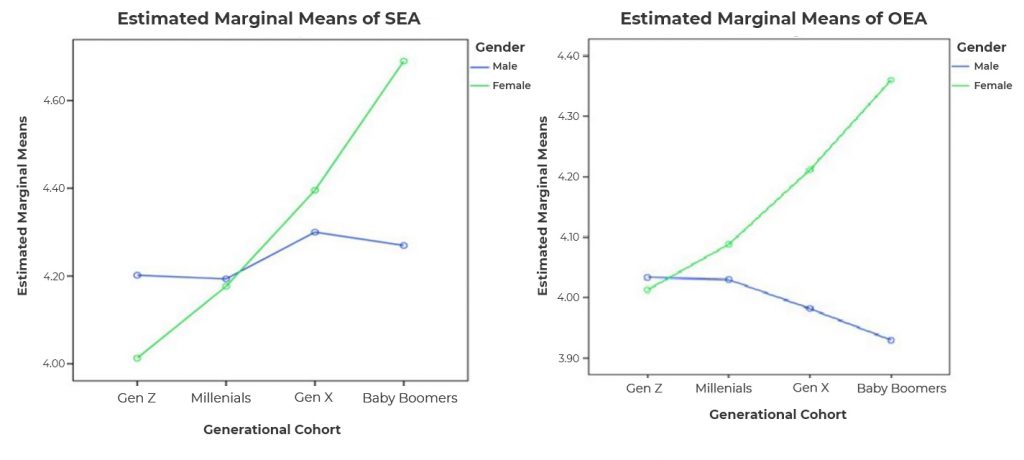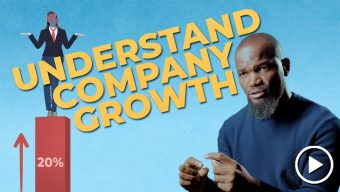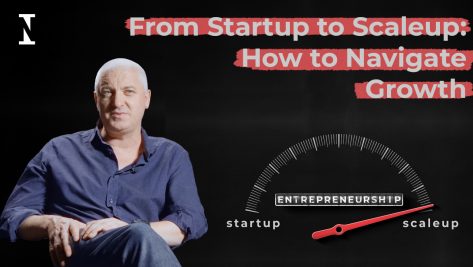The world currently boasts around 590 million active entrepreneurs, and this diverse and dynamic ecosystem has an increasing influence over the way teams are led and companies managed. From here, a new leadership style has emerged, one that rests at the nexus of emotional intelligence and transformational leadership – and that deserves a closer look, particularly in the way it crosses generations and genders.
How do gender and generational differences shape the emotional and leadership fabric of the entrepreneurial world?
The spirit of innovation and risk-taking that underpins entrepreneurial development means that it is inherently a complex emotional journey. Thus, emotional intelligence – the ability to understand and manage one’s emotions – is crucial for entrepreneurs. These individuals navigate their ventures with passion and inner drive. By mindfully applying emotional intelligence, they can significantly improve their decision-making processes.
This pivotal role of emotional intelligence in entrepreneurial activities gives way to a broader investigation: does gender and age play a role in entrepreneurial success? How do individuals of different genders and generations employ emotional intelligence in the business environment? In what way do these factors influence the presence of transformational leadership, a style that enables entrepreneurs to identify opportunities for change and guide their teams with the inspiration and passion that is so intrinsic to them?
With my coauthors, María Teresa Ballestar of Universidad Juan Rey Carlos, José Esteves of Porto Business School, and Jorge Sainz of the University of Bath, we investigated how gender (whether the entrepreneur is a man or woman) and age (what generation they belong to, from Baby Boomers to Gen Z) influence two key aspects for success in entrepreneurs: their ability to understand and manage emotions (emotional intelligence) and their ability to be inspiring and motivating leaders (transformational leadership).
As defined in 1997 by psychologists John D. Mayer of the University of New Hampshire and Peter Salovey of Yale University, emotional intelligence refers to “the ability to perceive accurately; appraise, and express emotion; the ability to access and/or generate feelings when they facilitate thought; the ability to understand emotion and emotional knowledge; and the ability to regulate emotions to promote emotional and intellectual growth.” Emotional intelligence extends our ability to perceive, process, and appropriately use emotional information by providing innovative ways to better understand and evaluate human behavior. This significantly impacts the managerial capabilities of entrepreneurs given the dynamic changes and challenges they frequently face.
There are many existing and proven tools for the study of emotional intelligence. For example, The Wong and Law Emotional Intelligence Scale was developed by Chi-sum Wong and Kenneth S. Law of CUHK Business School to provide a short measure of emotional intelligence to be used in workplace research. The measurement pulls from Mayer and Salovey’s four dimensions: self-emotional appraisal (SEA), the ability of individuals to understand their own emotions; others’ emotional appraisal (OEA), the ability of individuals to perceive and understand others’ emotions; use of emotion (UOE), the ability of individuals to make use of their emotions to enhance performance; and regulation of emotion (ROE), or, as the name suggests, the ability of individuals to regulate their emotions. In addition, a few prior studies have also examined the relationship between the emotional intelligence of leaders and transformational leadership styles, reaching contradictory conclusions.
The initial findings from our research confirm that among entrepreneurs, emotional intelligence is an antecedent of transformational leadership. The other elements that are significant contributors to transformational leadership styles are OEA and ROE, while only some dimensions of emotional intelligence are influenced by gender and generational cohort. Gender most significantly affects OEA and UOE, and generational cohort affects SEA, ROE, and UOE. We found substantial differences in emotional intelligence and transformational leadership styles across genders and generations, yet no significant difference in transformational leadership between men and women entrepreneurs. Additionally, no interaction effect between gender and generational cohort was observed.
Historically, studies have demonstrated that women exhibit more emotional intelligence than men, a trend observed in entrepreneurs as well. However, our study showed – somewhat unexpectedly – that Generation Z women entrepreneurs (born between the mid-1990s to early 2000s) have lower emotional intelligence scores than their male counterparts. What is more, while men’s emotional intelligence scores remain stable across generations, older women score significantly higher than their younger generational counterparts. Needless to say, this raises pertinent questions about gender and generational differences in regard to the development of emotional intelligence – and warrants further research.
Our research found still more interesting disparities between men and women entrepreneurs, as well as across generations. Notably, young women entrepreneurs from Gen Z got lower values in the SEA and OEA dimensions of emotional intelligence compared to their male counterparts. Additionally, as male entrepreneurs age, their confidence in their ability to understand others’ emotions decreases. This does not happen with women entrepreneurs as they age.
Moreover, our findings suggest that emotional regulation (ROE) is low among millennials but high among older generations. Remarkably, female Baby Boomer entrepreneurs outperform all others in all emotional intelligence dimensions, further indicating the trend towards diminished emotional intelligence among young entrepreneur women. Furthermore, we also found that Gen Z men demonstrate higher scores than Gen Z women across all emotional intelligence dimensions.
When it comes to being a transformational leader, emotional intelligence is key – regardless of one’s gender, age, or experience. Entrepreneurs with high levels of emotional intelligence are more affective, more creative, and create greater levels of engagement with peers and workers. This in turn means that they can promote more innovation in their ventures.
While evidence suggests that entrepreneurs are more inclined towards a transformational leadership style, gaps persist in our understanding of the relationship between entrepreneurs’ emotional capabilities, managerial orientation, and the growth of new ventures. But we do know that the long-term vision that a transformational leader brings to an organization helps stakeholders reduce uncertainty surrounding nascent entrepreneurial projects. Moreover, the characteristics associated with a transformational leadership style positively influence the growth of firms operating within rapidly evolving and highly innovative environments.
Helping entrepreneurs gain a deeper understanding of what affects their transformational leadership style is critical, particularly in the role that emotional intelligence plays. Regarding transformational leadership style, members of Gen X and particularly Baby Boomers have substantially higher results than members of younger generations, with women Gen Z entrepreneurs showing notably low levels of this leadership style. Although younger generations are highly educated, tech-savvy, well-traveled, confident, independent, goal-oriented, and open to transformative ideas, it seems that younger entrepreneurs do not develop a transformational leadership style. This comes down to emotional intelligence. Our findings indicate that those entrepreneurs with skills that include emotional intelligence have a competitive advantage because they can manage their emotions, are aware of the emotions of others, have better interactions with stakeholders, develop more tools to overcome the challenges facing their ventures, and ultimately achieve better performance within themselves, their team, and their venture.
© IE Insights.












